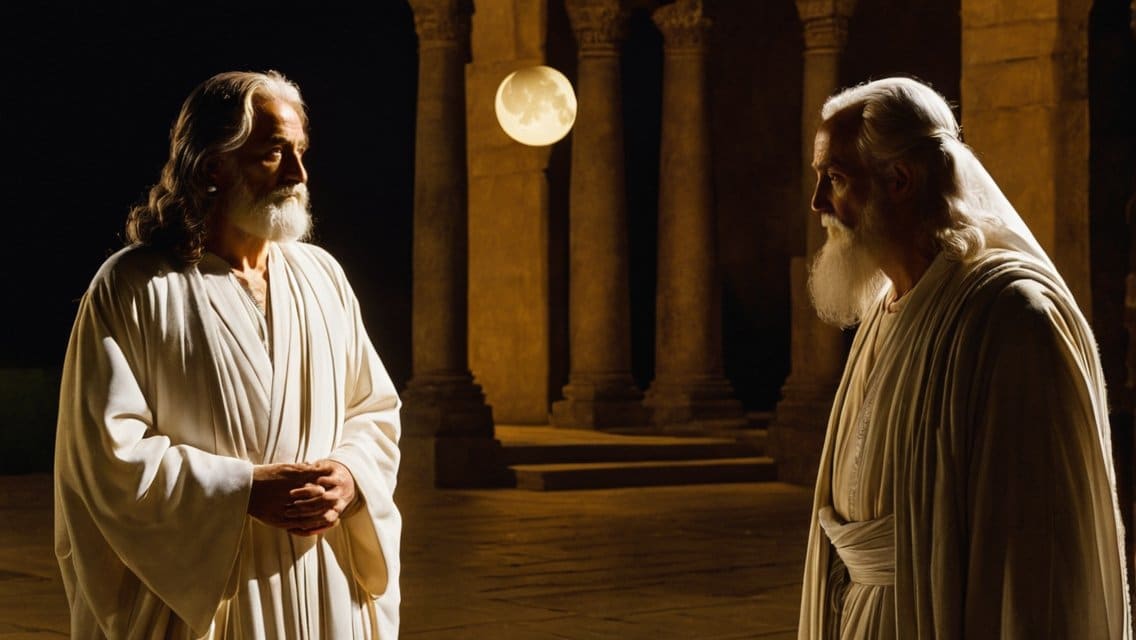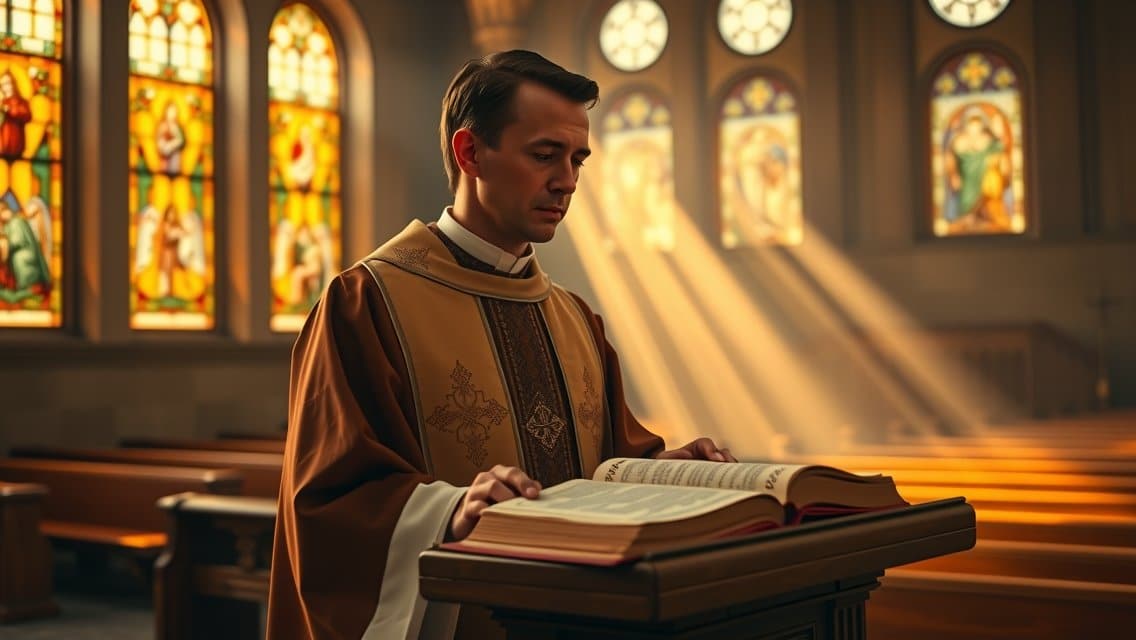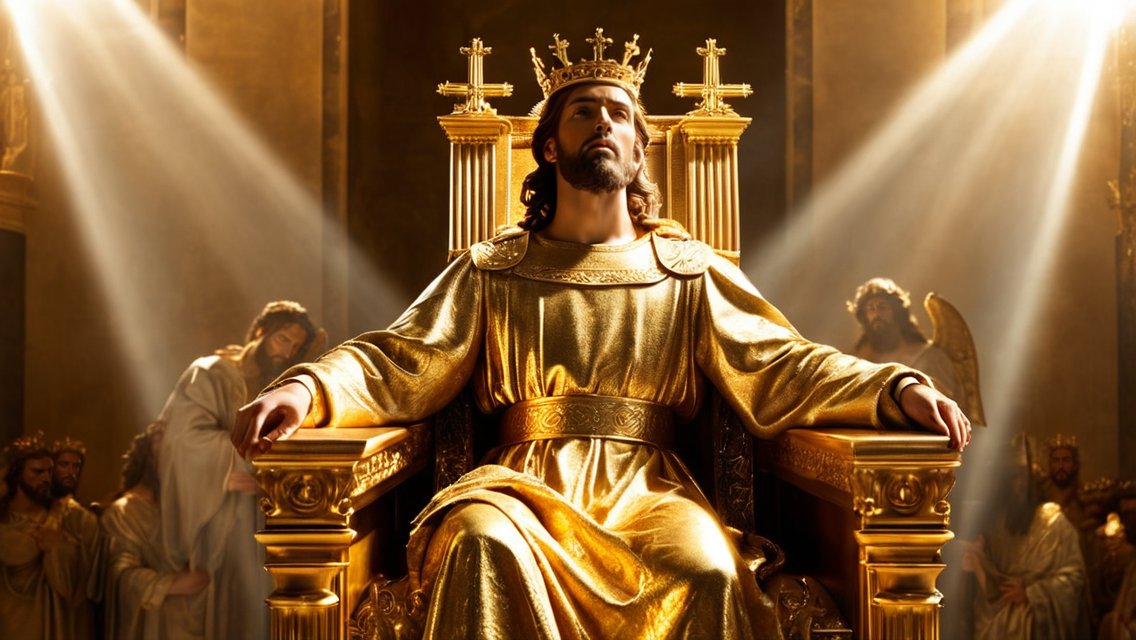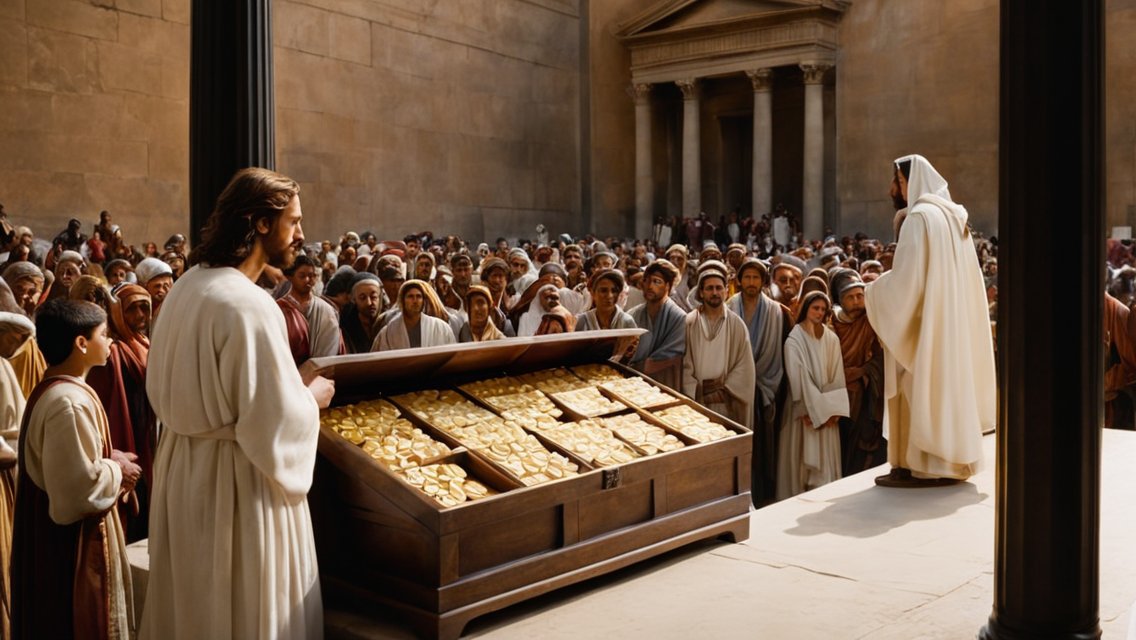Fourth Sunday of Lent Homily – Year B
Readings:
2 Chron 36:14-16, 19-23
Eph 2:4-10;
Jn 3:14-21
1st Reading – 2 Chronicles 36:14-16, 19-23
14 In those days, all the princes of Judah, the priests, and the people added infidelity to infidelity, practicing all the abominations of the nations and polluting the LORD’s temple which he had consecrated in Jerusalem.
15 Early and often did the LORD, the God of their fathers, send his messengers to them, for he had compassion on his people and his dwelling place.
16 But they mocked the messengers of God, despised his warnings, and scoffed at his prophets, until the anger of the LORD against his people was so inflamed that there was no remedy.
19 Their enemies burnt the house of God, tore down the walls of Jerusalem,
set all its palaces afire, and destroyed all its precious objects.
20 Those who escaped the sword were carried captive to Babylon, where they became servants of the king of the Chaldeans and his sons until the kingdom of the Persians came to power.
21 All this was to fulfill the word of the LORD spoken by Jeremiah: “Until the land has retrieved its lost sabbaths, during all the time it lies waste it shall have rest while seventy years are fulfilled.”
22 In the first year of Cyrus, king of Persia, in order to fulfill the word of the LORD spoken by Jeremiah, the LORD inspired King Cyrus of Persia to issue this proclamation throughout his kingdom, both by word of mouth and in writing:
23 “Thus says Cyrus, king of Persia: All the kingdoms of the earth the LORD, the God of heaven, has given to me, and he has also charged me to build him a house in Jerusalem, which is in Judah. Whoever, therefore, among you belongs to any part of his people, let him go up, and may his God be with him!”
Responsorial Psalm – Psalms 137:1-2, 3, 4-5, 6.
R. (6ab) Let my tongue be silenced, if I ever forget you!
1 By the streams of Babylon
we sat and wept
when we remembered Zion.
2 On the aspens of that land
we hung up our harps.
R. Let my tongue be silenced, if I ever forget you!
3 For there our captors asked of us
the lyrics of our songs,
And our despoilers urged us to be joyous:
“Sing for us the songs of Zion!”
R. Let my tongue be silenced, if I ever forget you!
4 How could we sing a song of the LORD
in a foreign land?
5 If I forget you, Jerusalem,
may my right hand be forgotten!
R. Let my tongue be silenced, if I ever forget you!
6 May my tongue cleave to my palate
if I remember you not,
If I place not Jerusalem
ahead of my joy.
R. Let my tongue be silenced, if I ever forget you!
2nd Reading – Ephesians 2:4-10
Brothers and sisters:
4 God, who is rich in mercy, because of the great love he had for us,
5 even when we were dead in our transgressions, brought us to life with Christ – by grace you have been saved -,
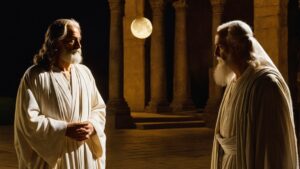
6 raised us up with him, and seated us with him in the heavens in Christ Jesus,
7 that in the ages to come He might show the immeasurable riches of his grace in his kindness to us in Christ Jesus.
8 For by grace you have been saved through faith, and this is not from you; it is the gift of God;
9 it is not from works, so no one may boast.
10 For we are his handiwork, created in Christ Jesus for the good works that God has prepared in advance, that we should live in them.
Verse Before The Gospel – John 3:16
16 God so loved the world that he gave his only Son,
so everyone who believes in him might have eternal life.
Gospel – John 3:14-21
Jesus said to Nicodemus:
14 “Just as Moses lifted up the serpent in the desert, so must the Son of Man be lifted up,
15 so that everyone who believes in him may have eternal life.”
16 For God so loved the world that he gave his only Son, so that everyone who believes in him might not perish but might have eternal life.
17 For God did not send his Son into the world to condemn the world, but that the world might be saved through him.
18 Whoever believes in him will not be condemned, but whoever does not believe has already been condemned, because he has not believed in the name of the only Son of God.
19 And this is the verdict, that the light came into the world, but people preferred darkness to light, because their works were evil.
20 For everyone who does wicked things hates the light and does not come toward the light, so that his works might not be exposed.
21 But whoever lives the truth comes to the light, so that his works may be clearly seen as done in God.
Homily
Snakes & Leaders
“The Son of Man must be lifted up as
Moses lifted up the serpent in the desert” (In)
Aboriginals in India have an indigenous and ingenious way of curing snakebite. On my Visit to Magathara village, south Gujarat, Nimmi (8) was bitten by a cobra. The girl wept bitterly. Makhabhai Chaudhary, Nimmi’s clad, the village aagewaan (leader), made an incision near the snakebite. He then caught a hen and pressedits rectum on the spot where blood was oozing out. The hen’s rectum worked like a suction-pump, and it began to struggle. I saw the hen slowly turning blue. Nimmi was saved. The hen died.
Today’s second and third readings speak of salvation with the imagery of snakes and leaders: Moses and Jesus. “The Son of Man must be lifted up as Moses lifted up the serpent in the desert, so that everyone who believes may have eternal life in him.” Jesus refers to a familiar event of Israelite salvation history (Num 21:4-9). When the Israelites complained in the desert, God punished them by sending poisonous serpents that bit them. Many perished. But, when the people asked for forgiveness, God told Moses to fashion a bronze serpent and place it on a pole. All those bitten would gaze at it and be saved.
Evangelist John interprets Jesus’ cross in terms of the salvation from snakebite. But, Jesus’ cross stands aloft symbolizing salvation not because death is beautiful (it is not I), but, because it bespeaks the ‘power of love”: “God so loved the world that he gave his only Son, so that everyone who believes in him may not perish but have eternal life.”
The theme of God’s love, mercy and salvation vis-a-vis human sinfulness is reiterated in the letters of Paul. He reminds the Galatians, “It was before your eyes that Jesus Christ was publicly exhibited as crucified!” (3: 1 ). Today’s second reading says, “God loved us with so much love that he was generous with his mercy: when we were dead through our sins, he brought us to life with Christ.”
The readings from john and Paul both stress that, in baptism, we die with Christ, and through God’s grace we rise with him. We might mistakenly believe that we’re ‘masters of our lives’ who can work out our salvation unaided by God. Impossible! “By grace you are saved, by a gift of God; not by anything you have done,.” But, then Paul wisely adds, “We are God’s work of art created to live the good life.” Indeed, there’s always the intertwining of God’s grace, as well as human effort to be good, do good, which becomes salvific.
In childhood, I enjoyed playing ‘snakes and ladders’. The dice is cast and one hopes to reach ‘Home’ before the others by avoiding snakes, ascending ladders. Some of those snakes were big; some, small. Even close to ‘Home’, one could suddenly be bitten by a snake and tumble down. Life’s like that! As the bronze-serpent signified salvation for the Israelites, the cross, like a ladder, leads us God wards.
Mysterious are God’s ways. In the first reading, the Chronicler traces Israel’s history. Despite witnessing the wonders of the Exodus, God’s people seem to play ‘snakes and ladders’ as their faith and infidelities, merits and sins interweave and lead’ them to Babylonian Exile. Surprisingly, God chooses the Persian king Cyrus to rebuild Temple and restore people. Cyrus too becomes
God’s leader: a ladder. In ‘The Crucified is no Stranger’ Sebastian Moore says that we, sinners, can come to The Crucified to seek solace in our sicknesses, pardon for our sins and salvation for Life. 50, Come! Do you need company at the foot of the cross? In his encyclical Deus Caritas Est (n.4 l), Pope Benedict writes, “When the disciples flee, Mary will remain beneath the Cross.” Yes, Mary’s always there!
A bronze-serpent saved the Israelites and Nimmi was saved by a hen. Mary stands with me beneath the cross. Am ready to “be lifted up” and pinned to that salvific Ladder called ‘Cross’?
